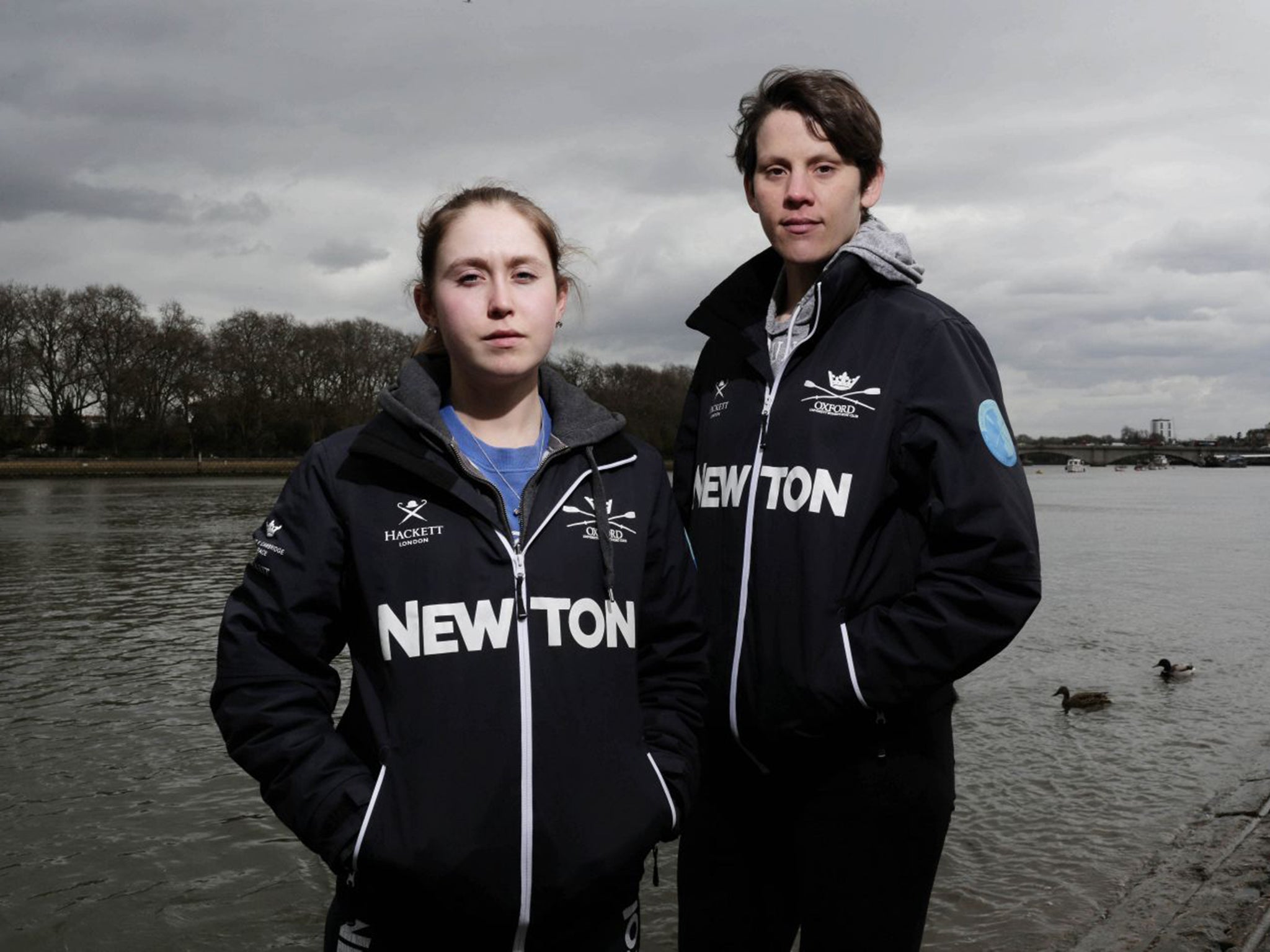Boat Race 2015: The tide has finally turned for Britain's female rowers
A race for both sexes will get equal billing for the first time next Saturday, in a timely victory for fairness

Maddy Badcott was “not sporty” at school and only took up rowing as a teenager because her mother wanted to get her out of the house during a summer holiday. But next Saturday the 19-year-old will make history when she joins teammates including the Olympic champion Caryn Davies in the Oxford boat for the first women’s Boat Race to be held on the same day, and same course, as the men’s event.
Women’s boat races have been taking place for almost 90 years. But while the men’s event is now watched by a global audience, many people are still unaware that a women’s race takes place at all.
This year, largely thanks to the work of Helena Morrissey, the chief executive of Newton Investment Management, which has sponsored the event for five years, things are different. The women’s race will get the same billing as the men’s and will be showcased live on the BBC.
Clare Balding, the face of the Grand National since the late 1990s, has decided this year to present the Boat Race instead, defending her decision by tweeting: “For the record, the Grand National doesn’t need my help, women’s sport does.”
Morrissey, who is head of the 30 per cent Club – a group that aims to get more women into British boardrooms – said 2015 “marks a milestone not only for the Boat Race, but also for equality in sport more widely”.
“It is hard to believe that just five years ago the women’s race had no financial support, and that the women athletes themselves had to cover the high cost of their participation,” she said. “Now both the men and women at Oxford and Cambridge University Boat Clubs receive equal sponsorship, a breakthrough for diversity in sport which we believe is just the tip of the iceberg of opportunities to put men’s and women’s sports on an equal footing.”
It is a “staggering statistic”, added Ms Morrissey, that only 0.4 per cent of commercial sports funding in the UK is devoted to women’s sport.
Robert Gillespie, chairman of the Boat Race Company, agreed that holding the men’s and women’s races on the same day was “good for rowing, for gender equality, and for sport as a whole”.
“The women will not achieve the same times and top speeds as the men, but this is not the ambition in moving them to the Tideway [the downriver, tidal part of the Thames],” he said. “The Women’s Boat Race is no less competitive and the athletes train and prepare in the same way, holding themselves to the same standard as the men. The move to the Tideway will showcase this and offer the same opportunities to both men and women.”
Ms Badcott, a second-year English undergraduate from London, said it was “fantastic to be part of something that could have such a big impact”.
The Boat Race 2014: in pictures
Show all 10“I feel genuinely really lucky to have come into it at this point and it makes me feel humble to know that millions of people will be watching,” she said. “It will hopefully inspire kids who will see that it is being taken seriously.”
The women’s race has been held at [upriver] Henley since the 1970s on a 2000m course, considerably shorter than the men’s 6800m Thames course. But those who argue women will struggle to make the distance are “ridiculous”, said Ms Badcott.
“Women do the exact same course as the men’s in reverse every year,” she says. “Fifteen- and 16-year-olds do this course. Women have shown that they can do it.”
She is thrilled to be rowing alongside Ms Davies, who won gold in the women’s eight in both the London and the Beijing Olympics and silver in Athens. “She has so much experience and it does make it seem more real,” said Ms Badcott. “It’s fantastic to have the opportunity to grow.”
The team, who were rescued from rough water in the Thames by a lifeboat last Thursday, have been training since September and do 10 to 12 sessions a week. Ms Davies, 32, who holds both US and British citizenship, is studying for an MBA and is the tallest member of the crew at 6ft 4in. She admits that the training is “more gruelling” than for the Olympics because of the “additional studying and lectures”.
The Oxford team will have to put “the momentousness of the occasion out of their minds to perform “the way that we want to”, she said.
“I’ve had a lot of parents tell me they plan to watch the Boat Race for the first time because they have young daughters,” she said.
“Whether or not we win, it will still be a pivotal moment.”
Subscribe to Independent Premium to bookmark this article
Want to bookmark your favourite articles and stories to read or reference later? Start your Independent Premium subscription today.

Join our commenting forum
Join thought-provoking conversations, follow other Independent readers and see their replies